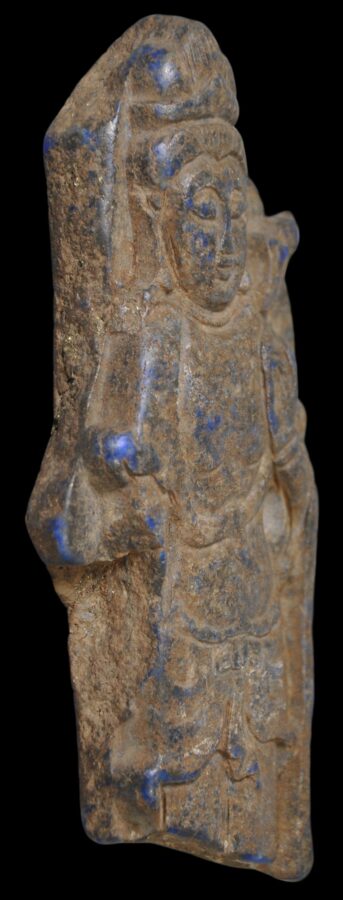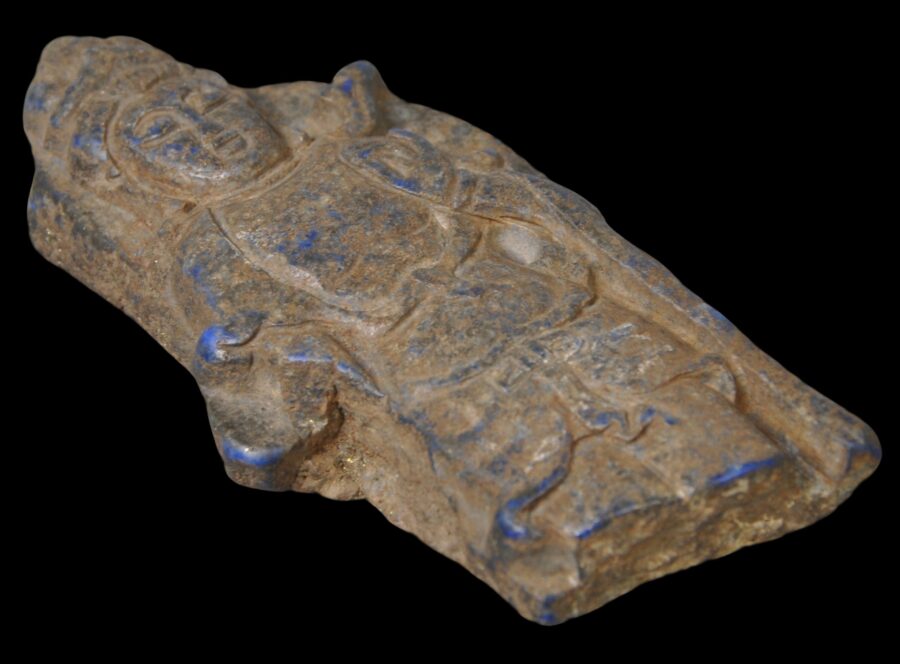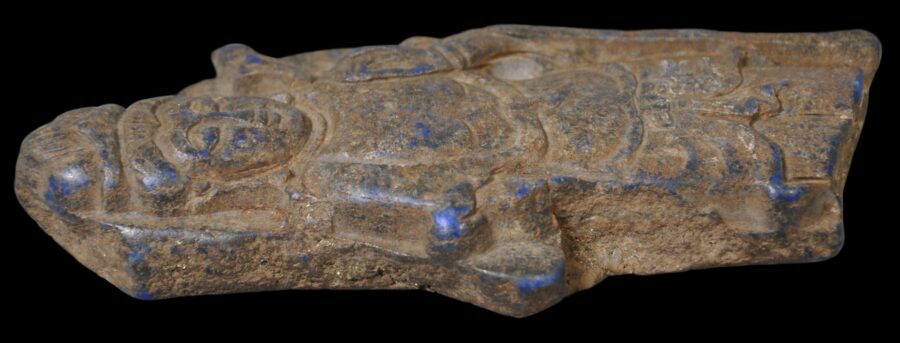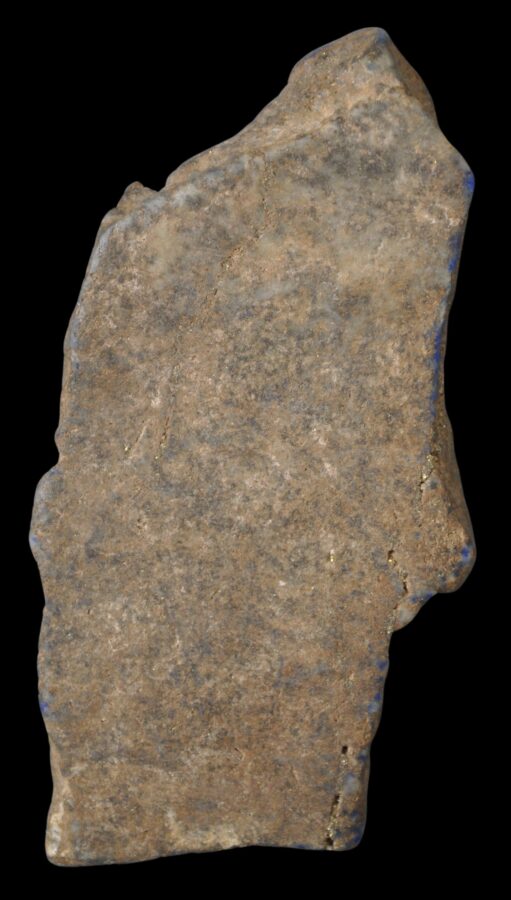This fragment image of a bodhisattva, possibly Guanyin and maybe even Avalokitesvara, has been carved from a single large piece of lapis lazuli.
The headdress, the robes, the oval face with high eyebrows, the broad features, the manner in which the robe ribbons are tied – all these aspects point to a Northern Qi Dynasty attribution or thereabouts.
Influence on the sculpture of the Northern Qi came from India and Persia and via the previous Han Dynasty. The Northern Qi rulers were devout Buddhists. Sculptures commissioned during this period often are of Guanyin typically dressed in court dress and with finely rendered jewellery based on Han courtly costume. The use of a material as precious as lapis lazuli in the image here is in keeping with the desire to honour such images with finery and expense as an act of merit making.
Small devotional Buddhist images carved from lapis lazuli are rare. A carved Padmapani attributed to 12th century Tibet comprised lot 16 in Bonham’s Hong Kong, ‘Images of Devotion’, October 2, 2018. Another example, a carved image of Bhutadamara, also attributed to around the 12th century is illustrated in Weldon & Casey Singer (1999, p. 69). A carved image of Kubera, also in lapis, is illustrated in Pal (2007, p. 65).
Afghanistan was the main source of lapis lazuli. Lapis lazuli from Afghanistan has been traded across the ancient world for millennia. It was a very precious and expensive commodity.
The lapis fragment here is in fine condition. It is intact and stable. It is rare to find such a large piece of lapis lazuli from this period.
References
Jansari, S., & S. Muthukamaran, Ancient India: Living Traditions, The British Museum, 2025.
Liu, Y. (ed.), Liaoning Museum, Chang Zheng Publishers, 2008.
Pal, P., The Arts of Kashmir, Asia Society, 2007.
Weldon, D., & J. Casey Singer, The Sculptural Heritage of Tibet: Buddhist Art in the Nyingjei Lam Collection, Laurence King/Weatherhill, 1999.








